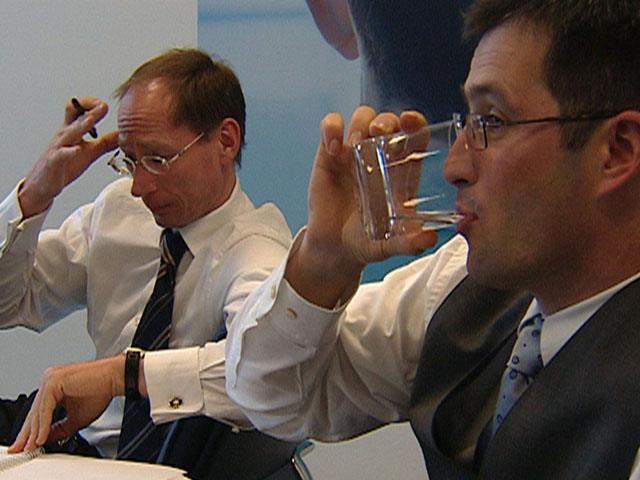
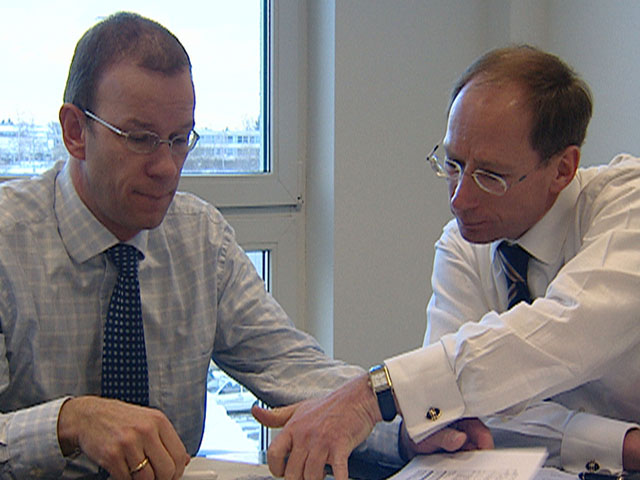
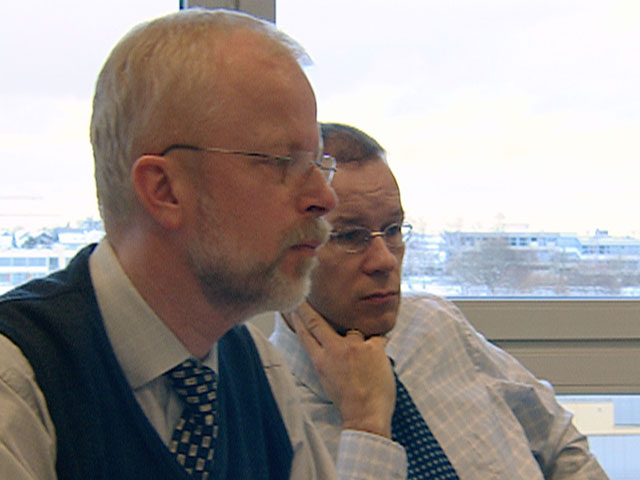
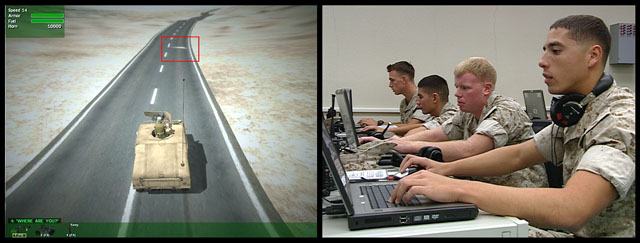
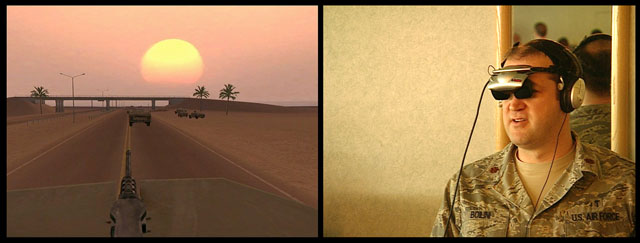





Farocki also went to several museums and art happenings, saw a theater production, and visited the Mamuta collective at the Daniela Passal Art and Media Center in Ein Karem, whose approach he found ground-breaking. After staying in Jerusalem, he continued on to Tel Aviv, and said “that unlike planned modernist cities like Chandigarh, in India, Tel Aviv functions in a lively, moving way.” Farocki also visited Ramallah, where he was glad to see daily life in progress. He said:”You never know what goes on behind the wall, and the Other never looks the way you imagine him. In Berlin there are still people who don’t go from West to East just because of this fear.”
Towards the end of his stay, the JCVA set up a talk and screening of two of Farocki’s films at the Tel Aviv Cinematheque. The talk and the two films, Serious Games (2009/2010) and Nothing Ventured (2004), raised a great deal of interest among a crowd of artists, students, film lovers and curators, many of whom were exposed to Farocki’s highly relevant work for the first. This was Farocki’s fourth visit to Israel; his first took place in 1979.
The “fly-on-the-wall” effect of the camera’s seeming absence places the film firmly in the Direct Cinema genre of documentaries that developed in North America in the sixties. The apparently bare reality creates a playful confusion: are these excellent actors, or men so fully engaged in the negotiations they have forgotten they are on film? Farocki presents the participants as actors so committed to the game of Capitalism that they authentically expose its codes.
Without pathos, a romantic Hollywood sub-plot or any particular aesthetic visual sting, Farocki breaks down the mystery surrounding men in suits and supplants it with human gestures, methodical pauses, vagueness, boredom, the wish for a cookie, the long hours and the Italian restaurant. The film’s name, Nothing Ventured, points to the fixed, immobile social roles and structures that govern the process of investing in a new company.
The film, like other of Farocki’s works of the last decades, offers an uncompromising exposure of the hidden narratives behind economic and political practices governing the West in the post-industrial era.